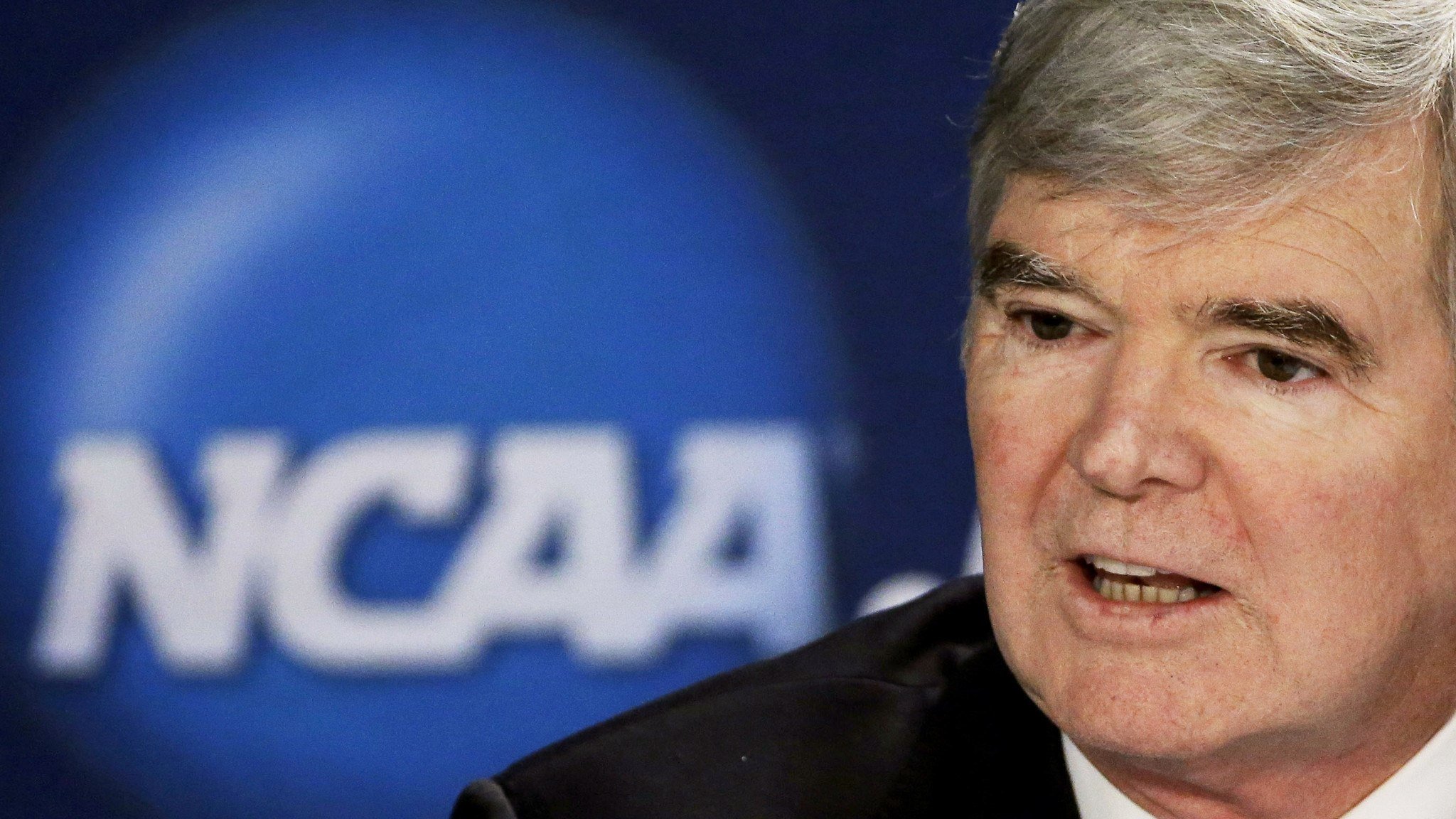NCAA President Mark Emmert No Fan of Collegiate Sports Betting If PASPA Overturned
Posted on: December 8, 2017, 09:40h.
Last updated on: December 8, 2017, 09:45h.
NCAA President Mark Emmert said this week that the collegiate sporting organization has no plans to embrace the concept of wagering on its athletic outcomes, regardless of whether the US Supreme Court rules the current federal ban, known as PASPA, is unconstitutional.

Appearing at the Learfield Intercollegiate Athletics Forum this week in New York City, Emmert was asked about his position on the Supreme Court deliberating an overturn of the Professional and Amateur Sports Protection Act of 1992 (PASPA). The NCAA boss said should the federal law be repealed, the association would lobby states across the country to provide carve outs in their sports betting laws that would continue to prohibit gambling on college sports.
The NCAA has long shunned Las Vegas from hosting national collegiate championships to its numerous sportsbooks. If PASPA is repealed, and the expected 20-odd states legalize sportsbooks, as some analysts are predicting, the NCAA might have to rethink its criteria for hosting major events.
“Obviously, if you wind up with sports gambling everywhere in the country we’re not going to stop playing championships. We’ll play wherever we have to,” Emmert said regarding that concern.
But he concluded that there’s no rush to change the organization’s current standards, saying, “We’ll cross that bridge when we come to it.”
Integrity Name of Game
Emmert and NFL Commissioner Roger Goodell believe sports betting jeopardizes the integrity of sport. Opponents say a legal sports gambling regulatory framework would better protect the leagues.
One thing is for certain: betting increases engagement. According to a Nielsen Sports study, fans who gamble on the NFL watch 19 more regular season games each year than fans who don’t place bets. Viewership is, of course, how the NFL and its partners make money. ESPN, the network that broadcasts Monday Night Football, has lost almost 13 million subscribers since 2011.
Bridge Ahead
The NCAA, along with the NFL, MLB, NBA, and NHL, sued New Jersey after voters there approved a ballot referendum in 2011 to allow the state’s horse racetracks and Atlantic City casinos to operate sportsbooks.
The NCAA and Big Four contend that PASPA supersedes New Jersey’s law. Lower courts have agreed, but at this week’s US Supreme Court appeal hearing, the majority of the nine justices seemed to voice concerns over whether PASPA violates the Constitution.
That’s what New Jersey lawyers are arguing. Interpretations made from the Tenth Amendment have declared that the federal government cannot commandeer states’ laws. New Jersey, after being successfully blocked in court by the NCAA et al, passed a new law that essentially voided PASPA in the Garden State.
On December 4, the two sides made their cases as to why PASPA should or shouldn’t be repealed. Most reporters in the courtroom felt six of the nine justices seemed probable to rule against PASPA and allow states to dictate their own sports gambling laws.
When PASPA was passed, it afforded immunities to Nevada and three other states that had some form of legalized sports wagering already in place before 1992, the year the bill was passed.
No comments yet